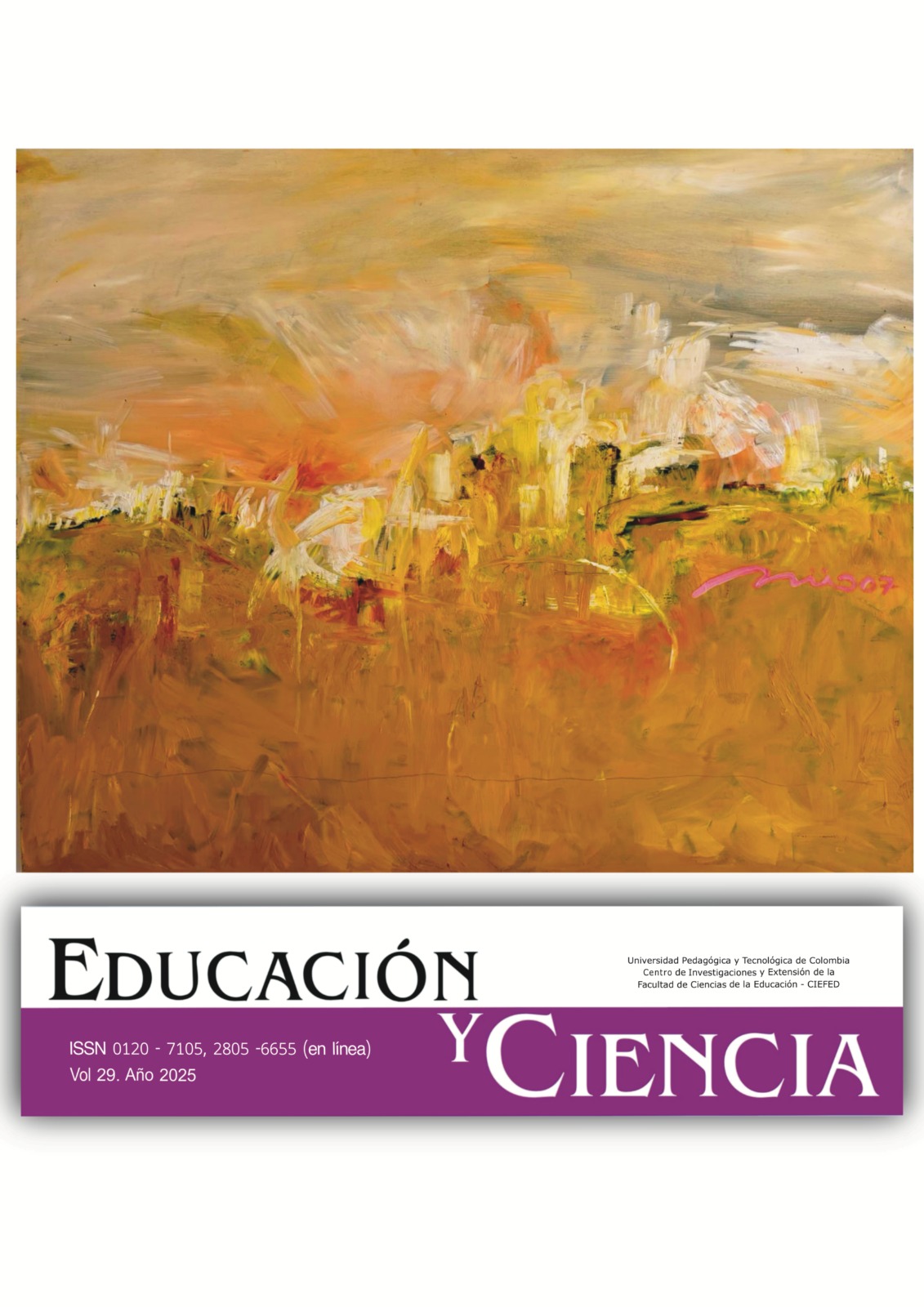Pedagogical strategies for the functionality of the coexistence manual

Abstract
This article presents research on the impact of pedagogical strategies on the learning of the code of conduct manual among students at the Gustavo Rojas Pinilla Educational Institution in Tunja, Colombia. The introduction highlights the need to improve understanding of the manual's norms due to the observed low knowledge of its content. The adopted methodology is pre-experimental, using a quantitative approach with a structured questionnaire applied before and after the didactic intervention. The results reveal that students showed a low average on the initial test, indicating difficulties in understanding the manual. The discussion suggests that innovative pedagogical strategies, such as the use of active study techniques, improve motivation and learning of the code of conduct manual's content. Finally, the conclusions emphasize the importance of complementing traditional teaching with interactive methods and additional resources, such as practical workshops, to facilitate the application of norms in real situations. It is recommended to continue researching the effectiveness of these strategies in other educational contexts to promote meaningful and lasting learning.
Keywords
Code of conduct manual, pedagogical strategies, coexistence, educational innovation
References
- Biasutti, M., Makrakis, V., Concina, E., & Frate, S. (2018). Educating academic staff to reorient curricula in ESD. International Journal of Sustainability in Higher Education, 19, 179-196. https://doi.org/10.1108/IJSHE-11-2016-0214
- Bolkan, S., & Griffin, D. (2018). Catch and hold: instructional interventions and their differential impact on student interest, attention, and autonomous motivation. Communication Education, 67, 269 - 286. https://doi.org/10.1080/03634523.2018.1465193
- Bonesso, S., et al. (2015). Experiential Education: A Key to Emotional and Social Competence Development. Journal of Educational Psychology, 107(3), 123-135.
- Campbell, D. T. y Stanley, J. C. (1978). Diseños experimentales y cuasiexperimentales en la investigación social. Editorial McGraw-Hill.
- Freire, P. (1970). Pedagogía del oprimido. Siglo XXI Editores.
- Gardner, H. (1983). Frames of Mind: The Theory of Multiple Intelligences. Basic Books.
- Guest, G. (2013). Describing Mixed Methods Research. Journal of Mixed Methods Research, 7, 141 - 151. https://doi.org/10.1177/1558689812461179
- Jacobs, J., et al. (2013). The Role of Sports in Teaching Social Skills and Ethical Values. International Journal of Sports Science, 3(2), 45-52.
- Kolb, D. A. (1984). Experiential learning: Experience as the source of learning and development. Prentice Hall.
- Lenkauskaitė, R, Colomer, J., & Bubnys, R. (2020). Students’ Social Construction of Knowledge through Cooperative Learning. Sustainability. https://doi.org/10.3390/su12229606.J
- Mehiri, M. (2020). Multiple Intelligences in Education: A Review of the Literature. Journal of Educational Research, 113(4), 345-356.
- Mendo-Lázaro, S., León-del-Barco, B., Felipe-Castaño, E., Polo-del-Río, M., & Iglesias-Gallego, D. (2018). Cooperative Team Learning and the Development of Social Skills in Higher Education: The Variables Involved. Frontiers in Psychology, 9. https://doi.org/10.3389/fpsyg.2018.01536
- Pandey, P., & Pandey, M. (2015). Research Methodology: Tools and techniques (1ra edition ed.). Romania: Bridge Center. ISBN 978-606-93502-7-0
- Parsons, S., Vaughn, M., Scales, R., Gallagher, M., Parsons, A., Davis, S., Pierczynski, M., & Allen, M. (2017). Teachers’ Instructional Adaptations: A Research Synthesis. Review of Educational Research, 88, 205 - 242. https://doi.org/10.3102/0034654317743198
- Safranko, C., & Hašková, A. (2021). Metodology of quantitative research application in context of branch didactics. Journal of Technology and Information. 13(1):116-134. DOI:10.5507/jtie.2021.012
- Tularam, G., & Machisella, P. (2018). Traditional vs Non-traditional Teaching and Learning Strategies - the case of E-learning! International Journal for Mathematics Teaching and Learning. https://doi.org/10.4256/ijmtl.v19i1.21
- Vygotsky, L. S. (1978). Mind in society: The development of higher psychological processes. Harvard University Press.
- Willis, J. (2006). Research-Based Strategies to Ignite Student Learning: Insights from a Neurologist and Classroom Teacher. Association for Supervision and Curriculum Development (ASCD).
- Wolfe, P. (2001). Brain Matters: Translating Research into Classroom Practice. Association for Supervision and Curriculum Development (ASCD).
- Xue, E., & Li, J. (2023). Unpacking policy evaluation and measurement of creating world-class universities in China from an integrated policy analysis. Educational Philosophy and Theory. Advance online publication. https://doi.org/10.1080/00131857.2023.2181234
